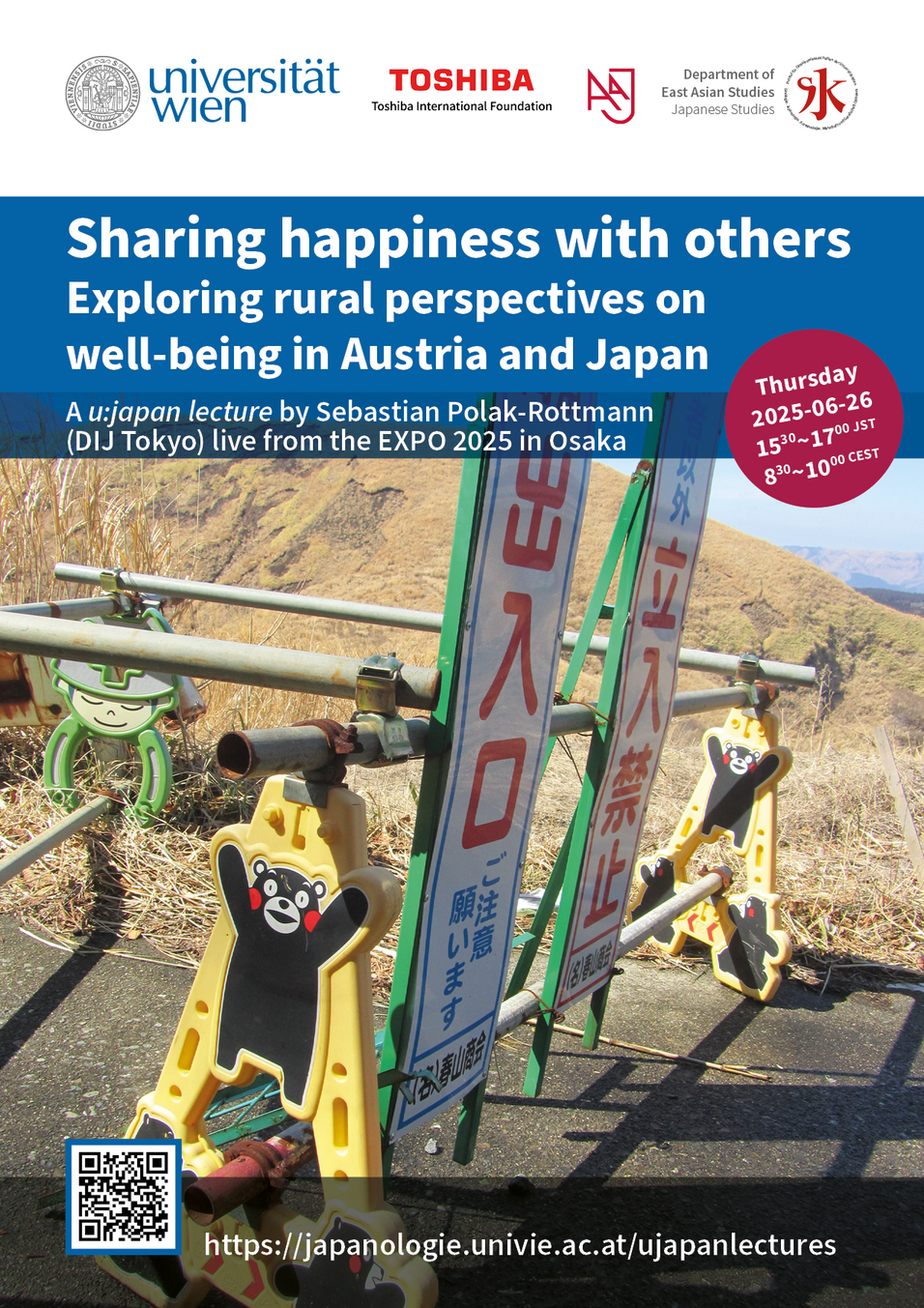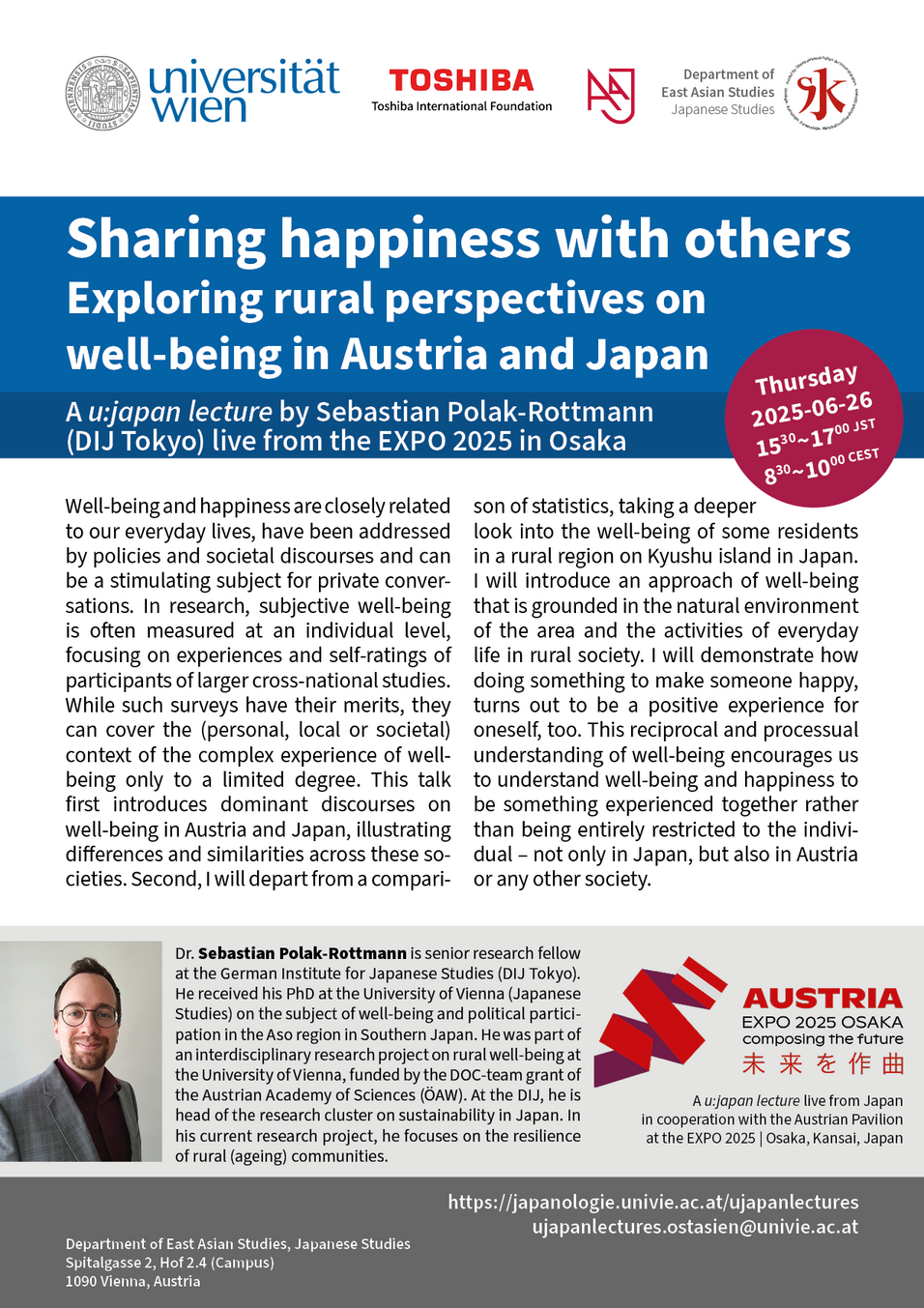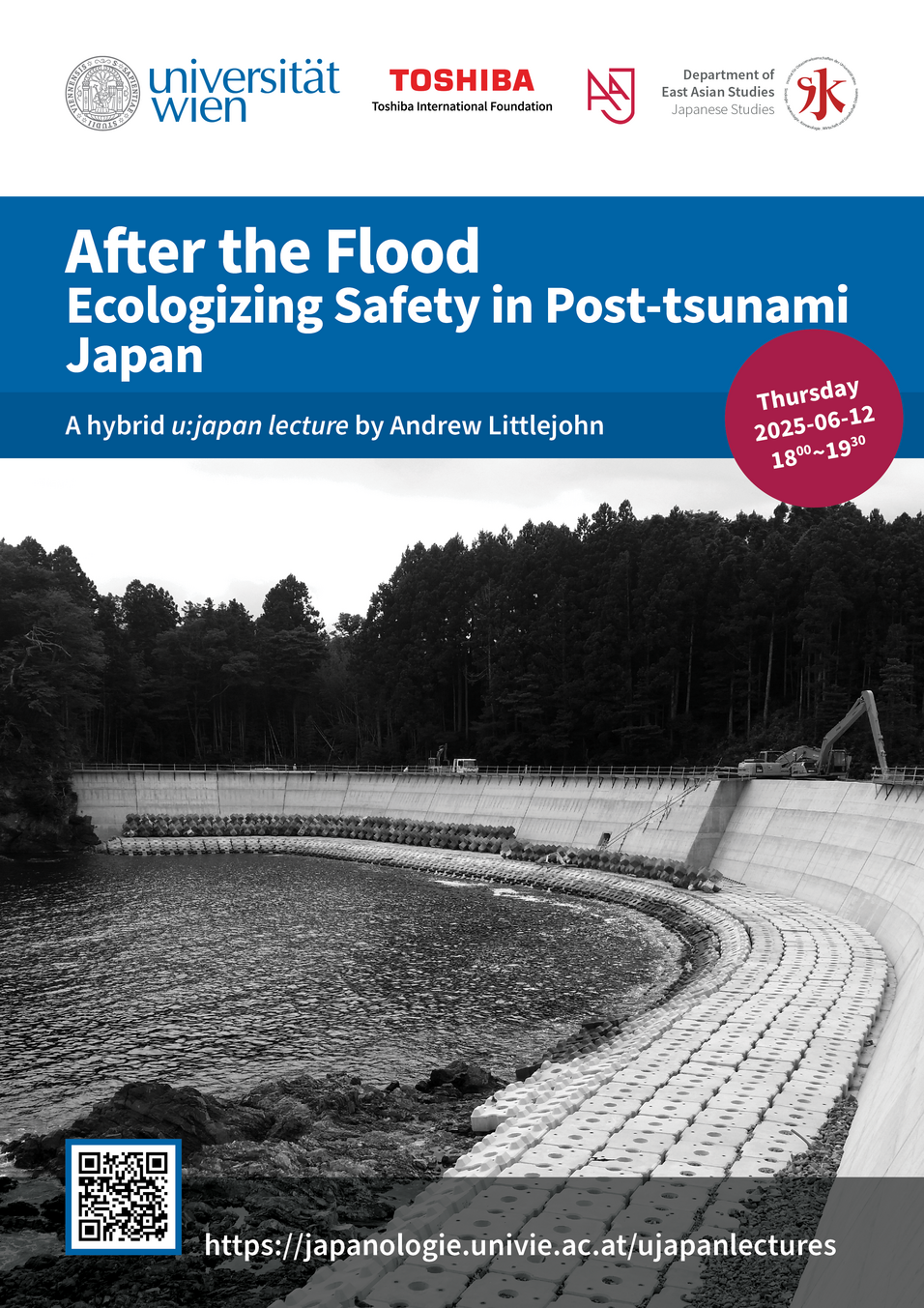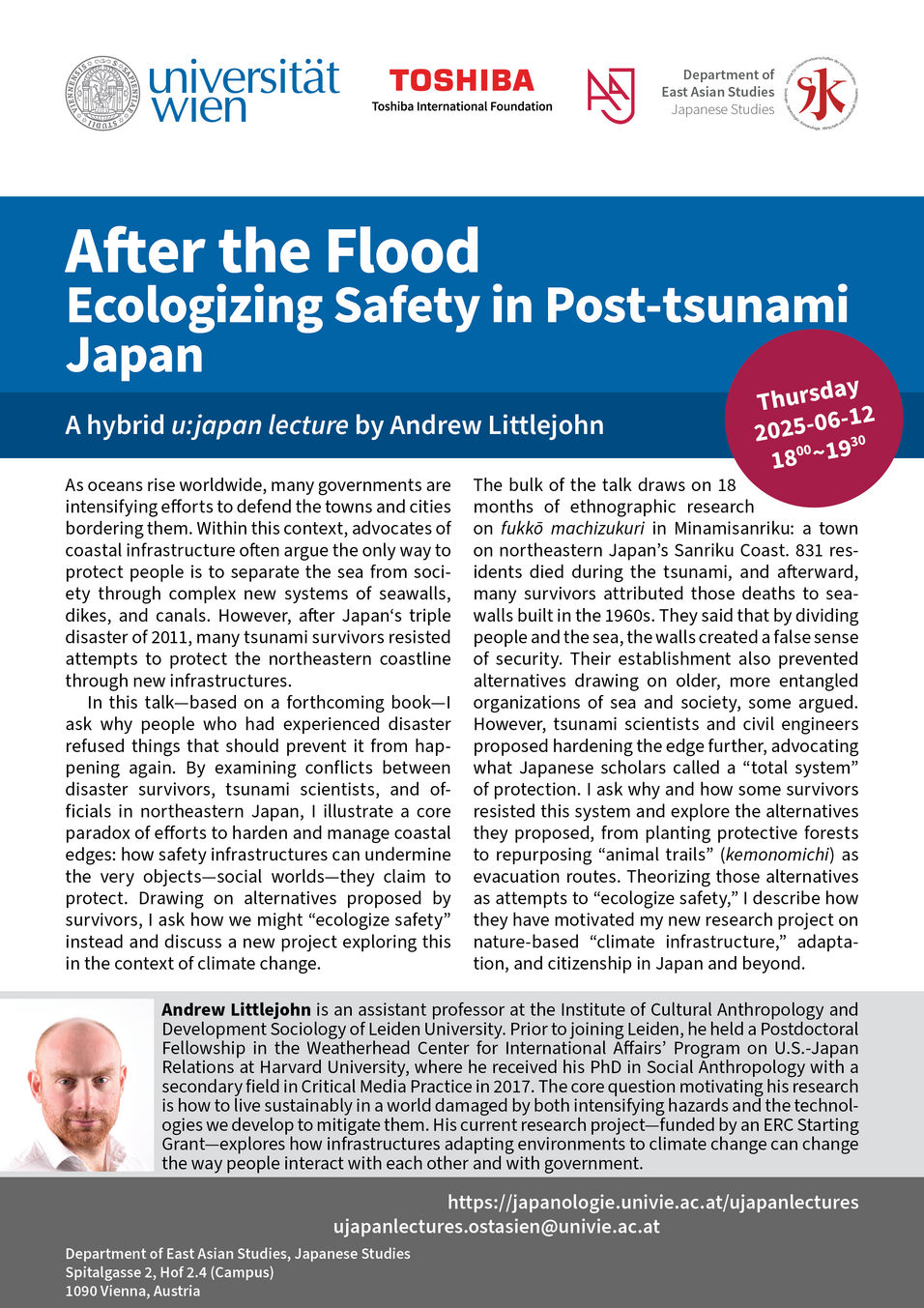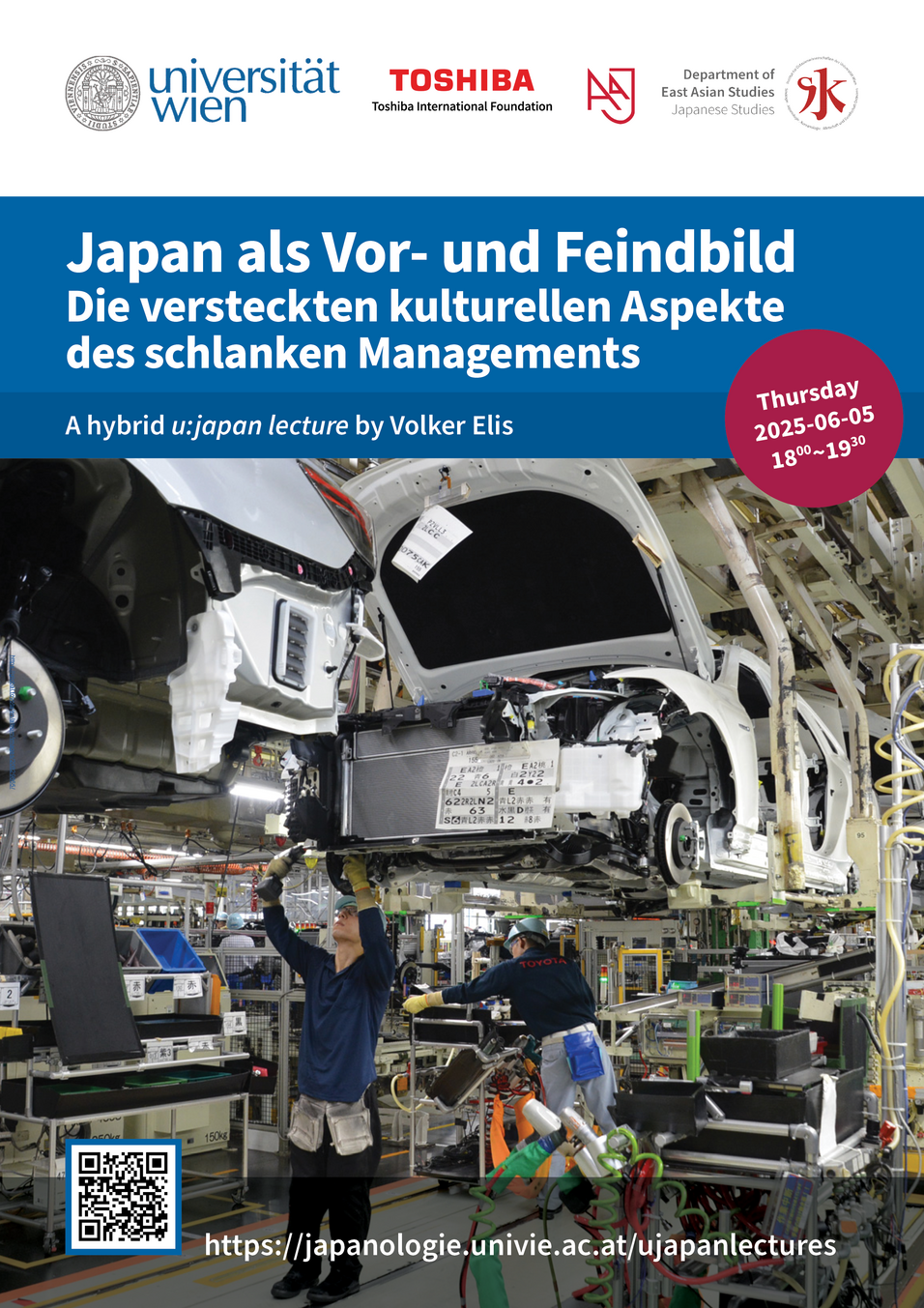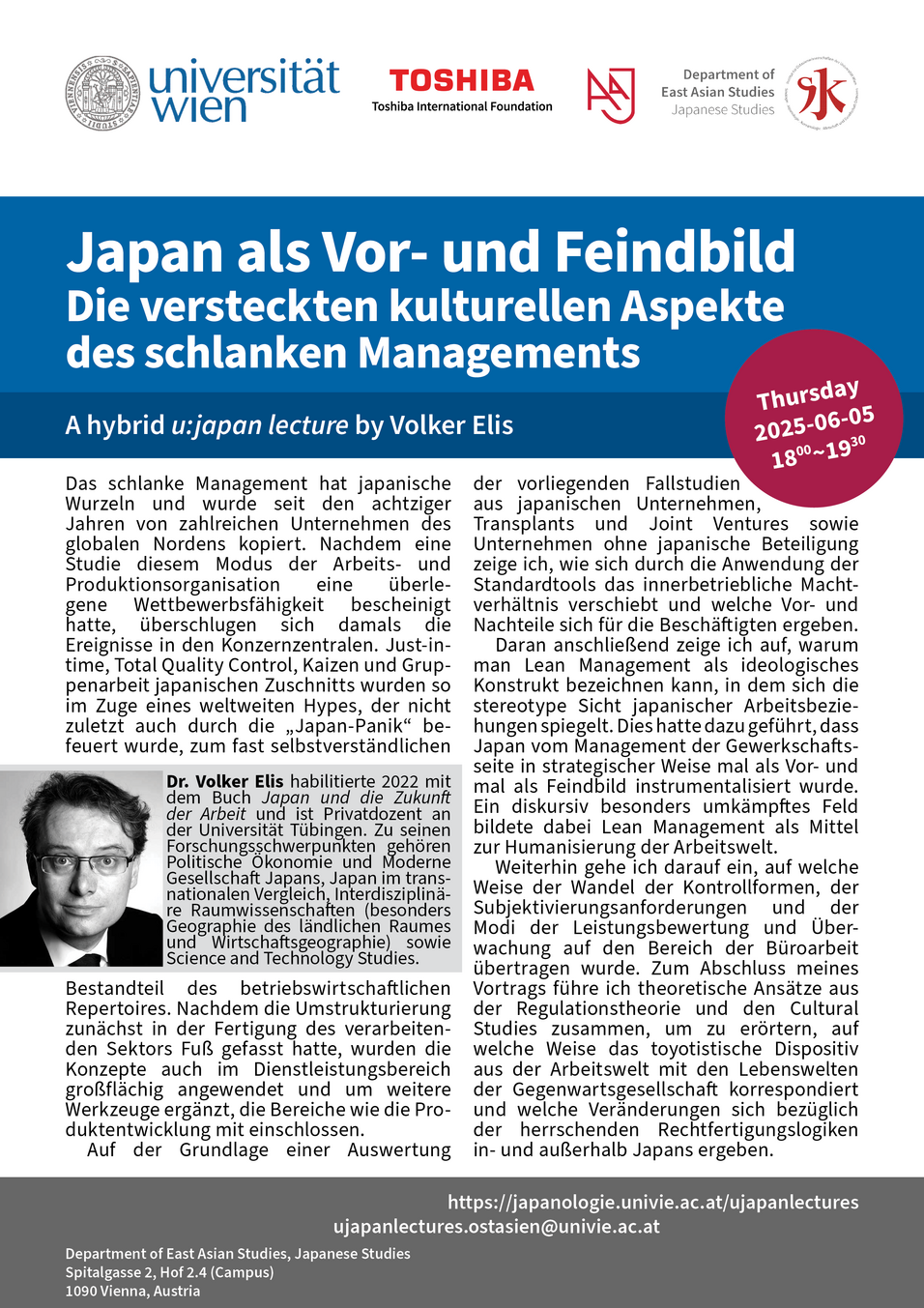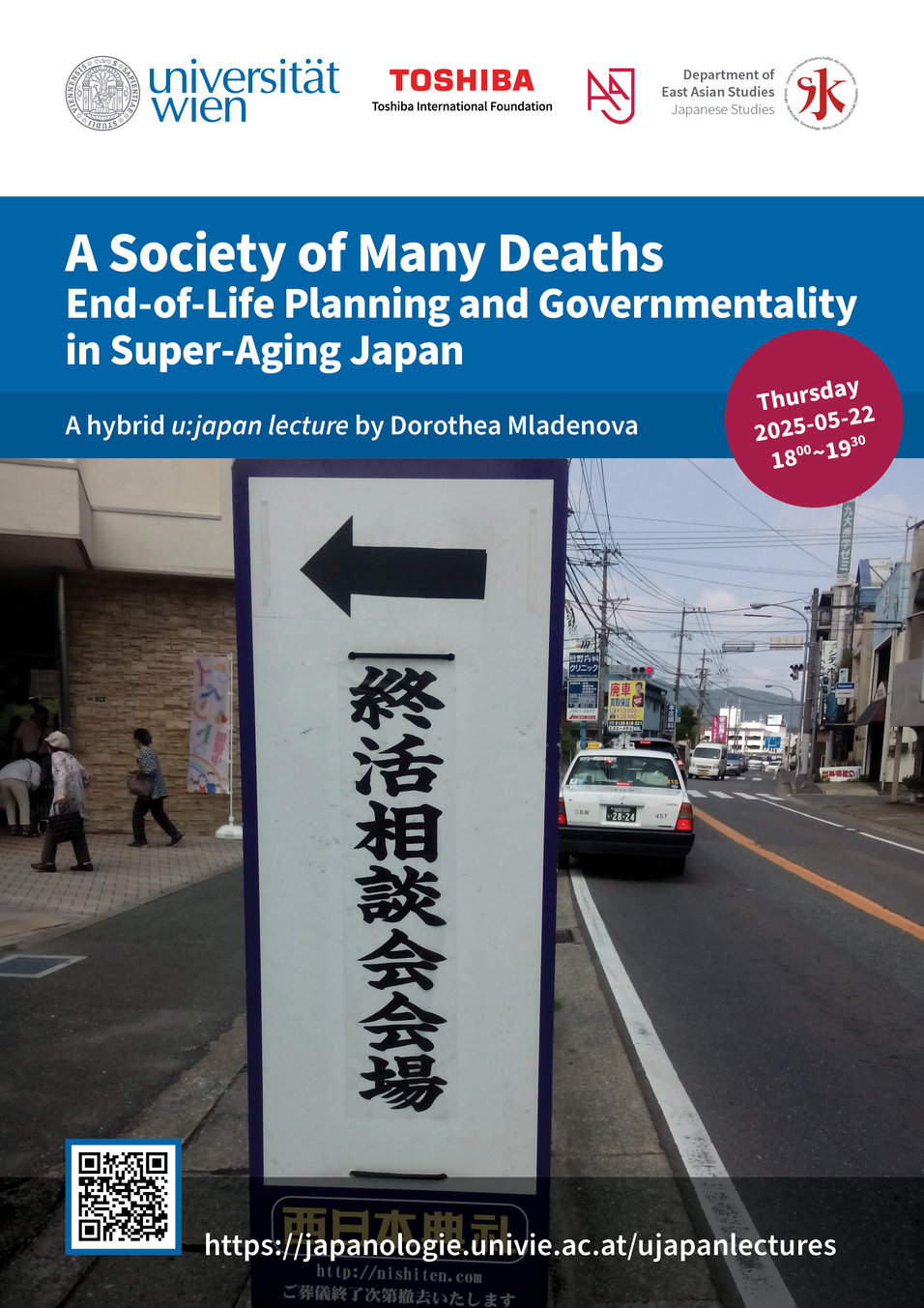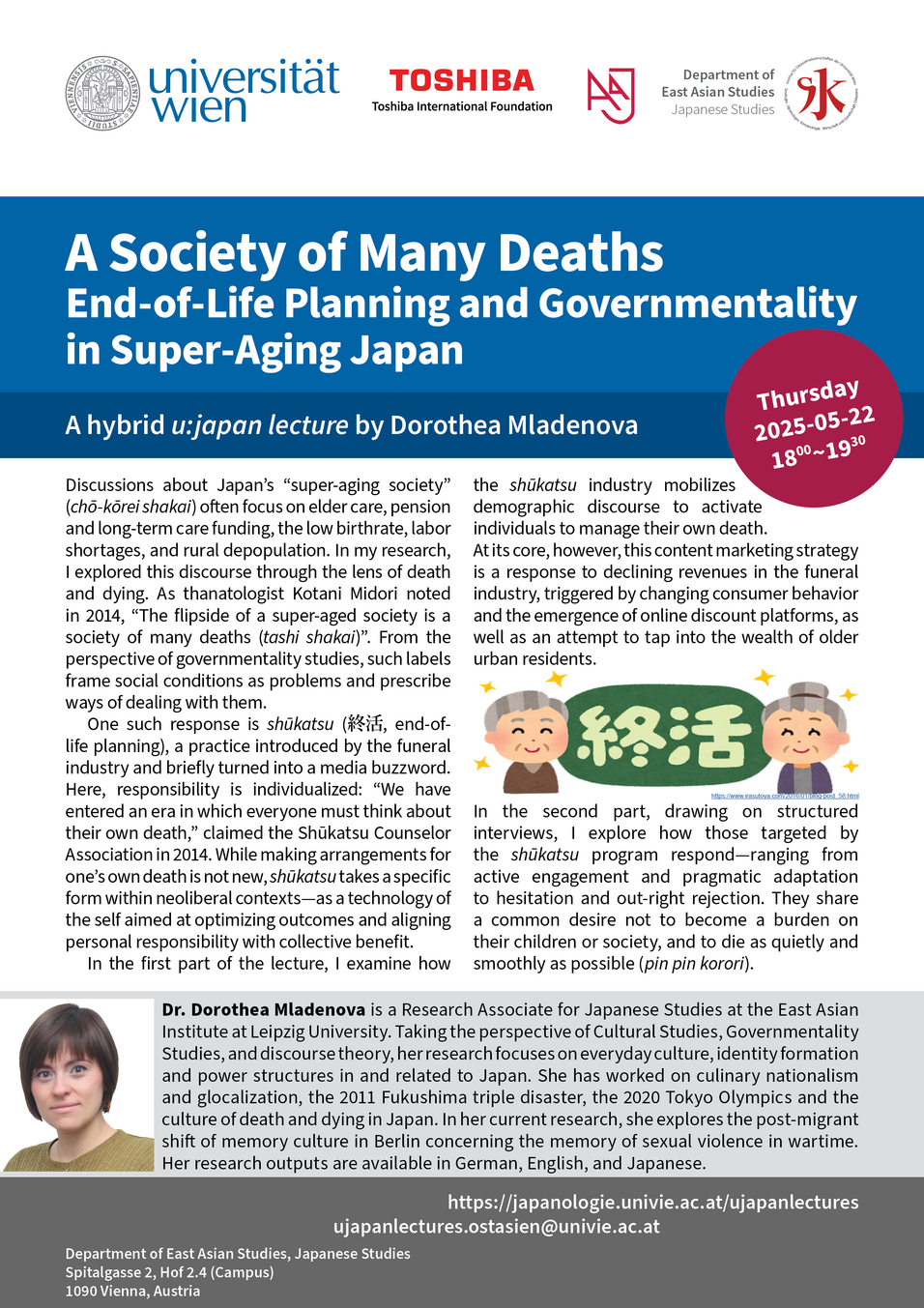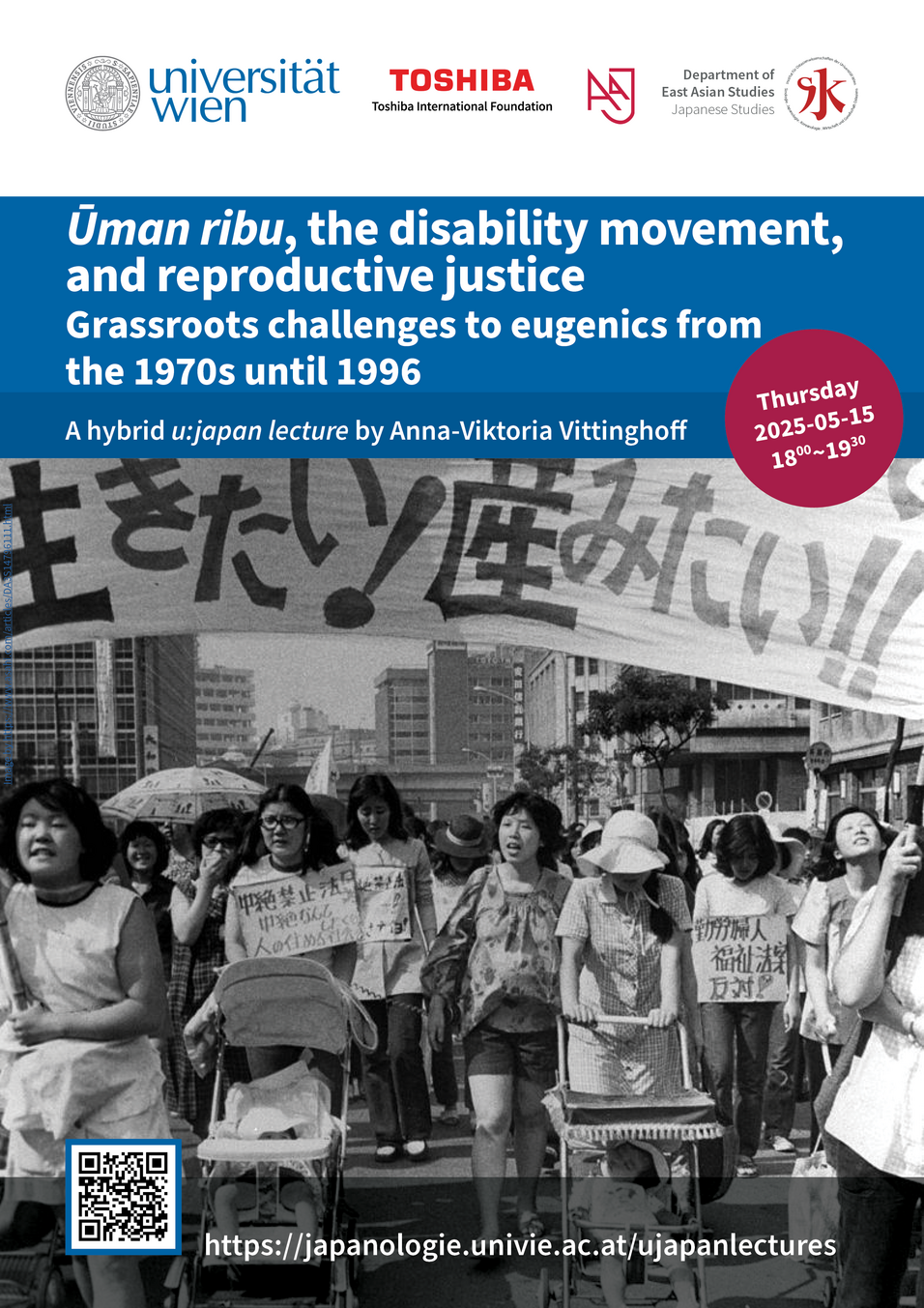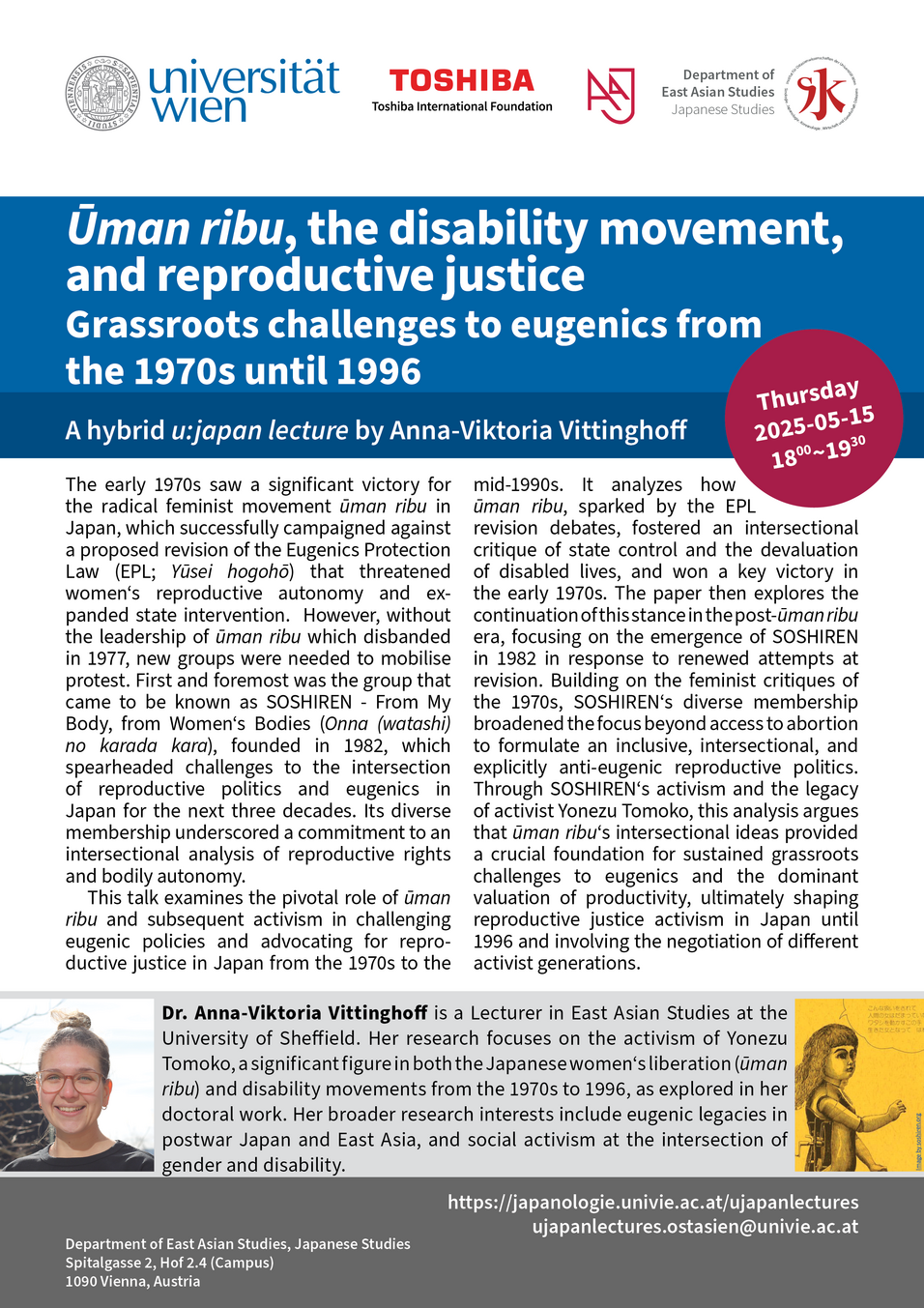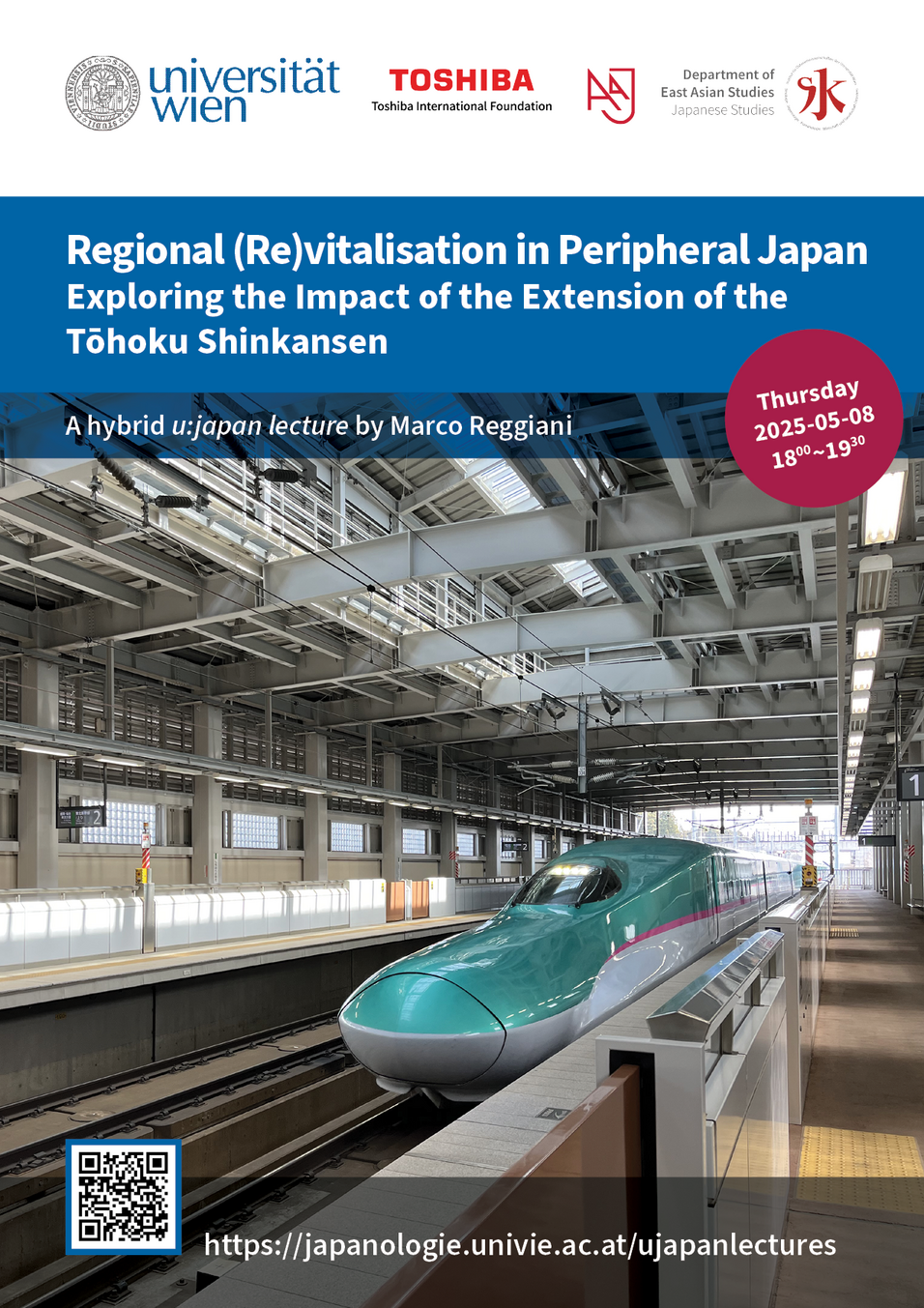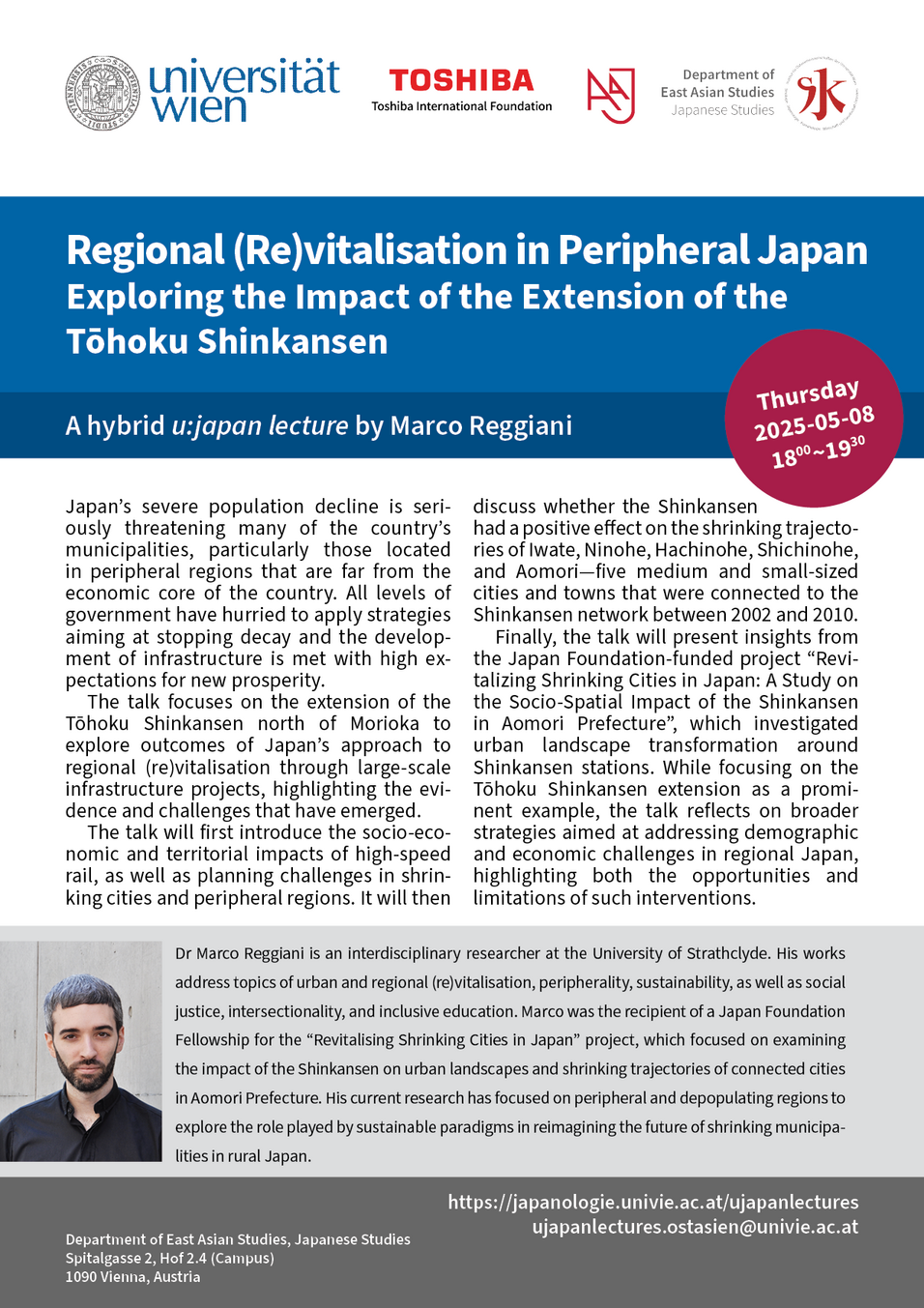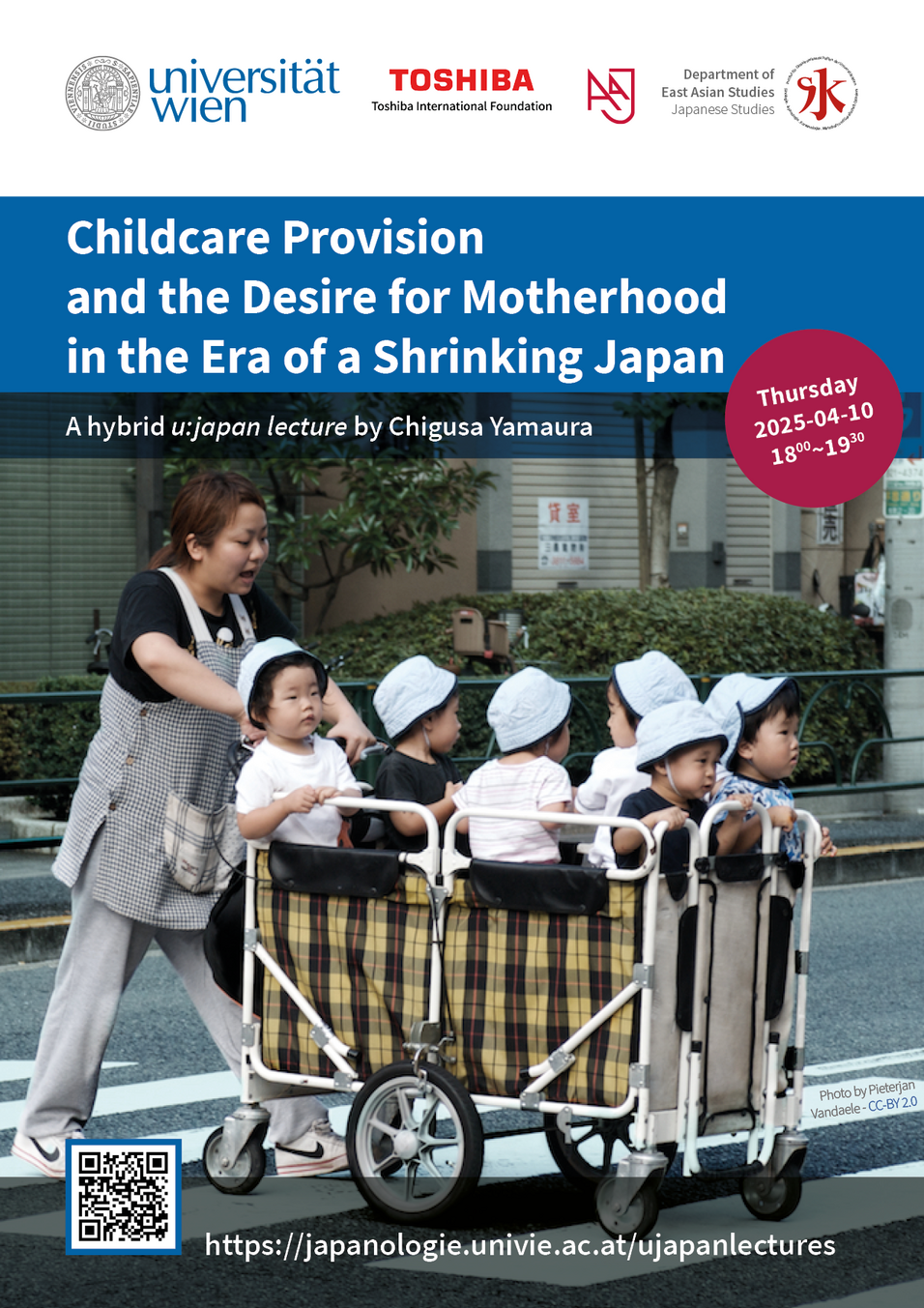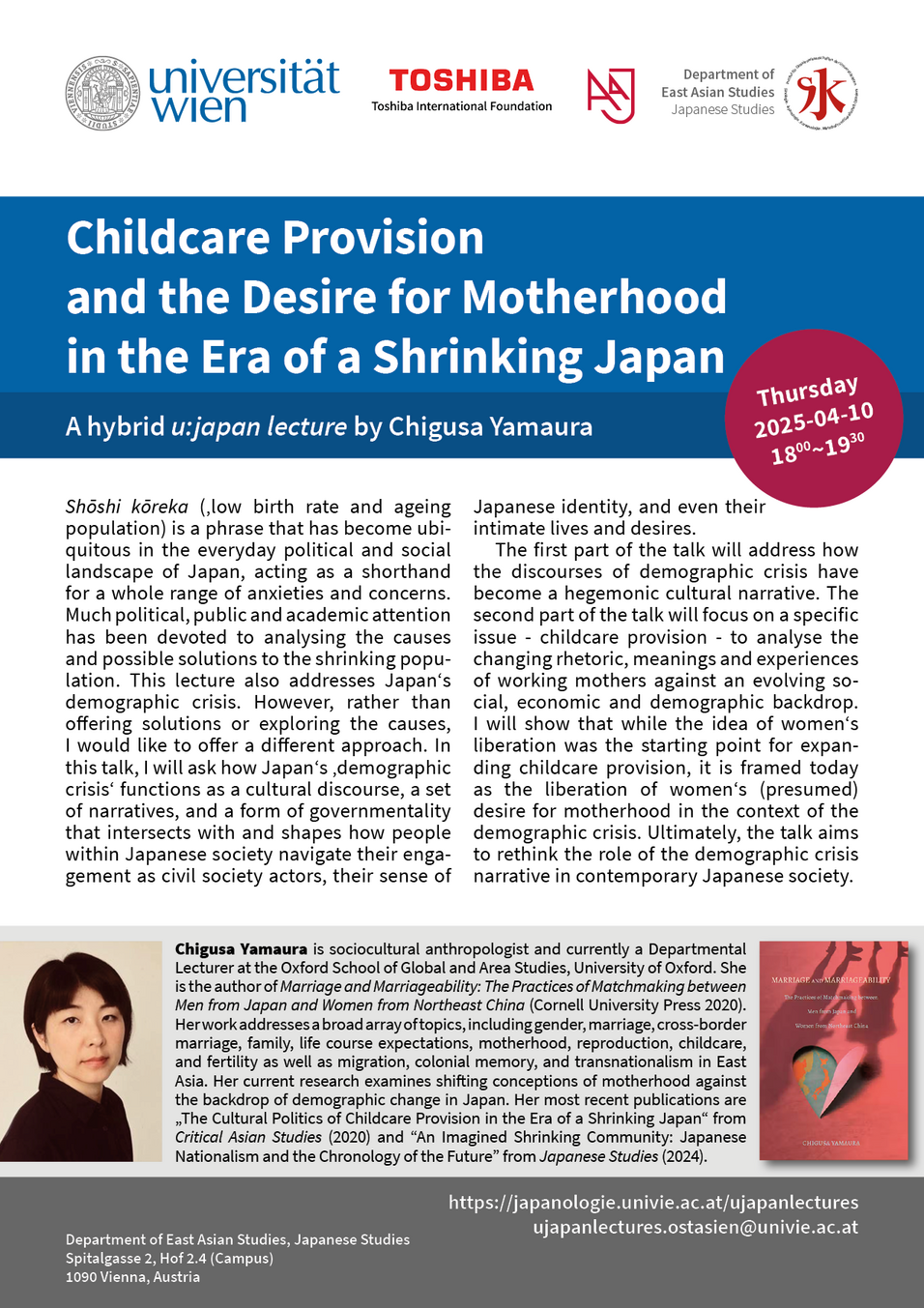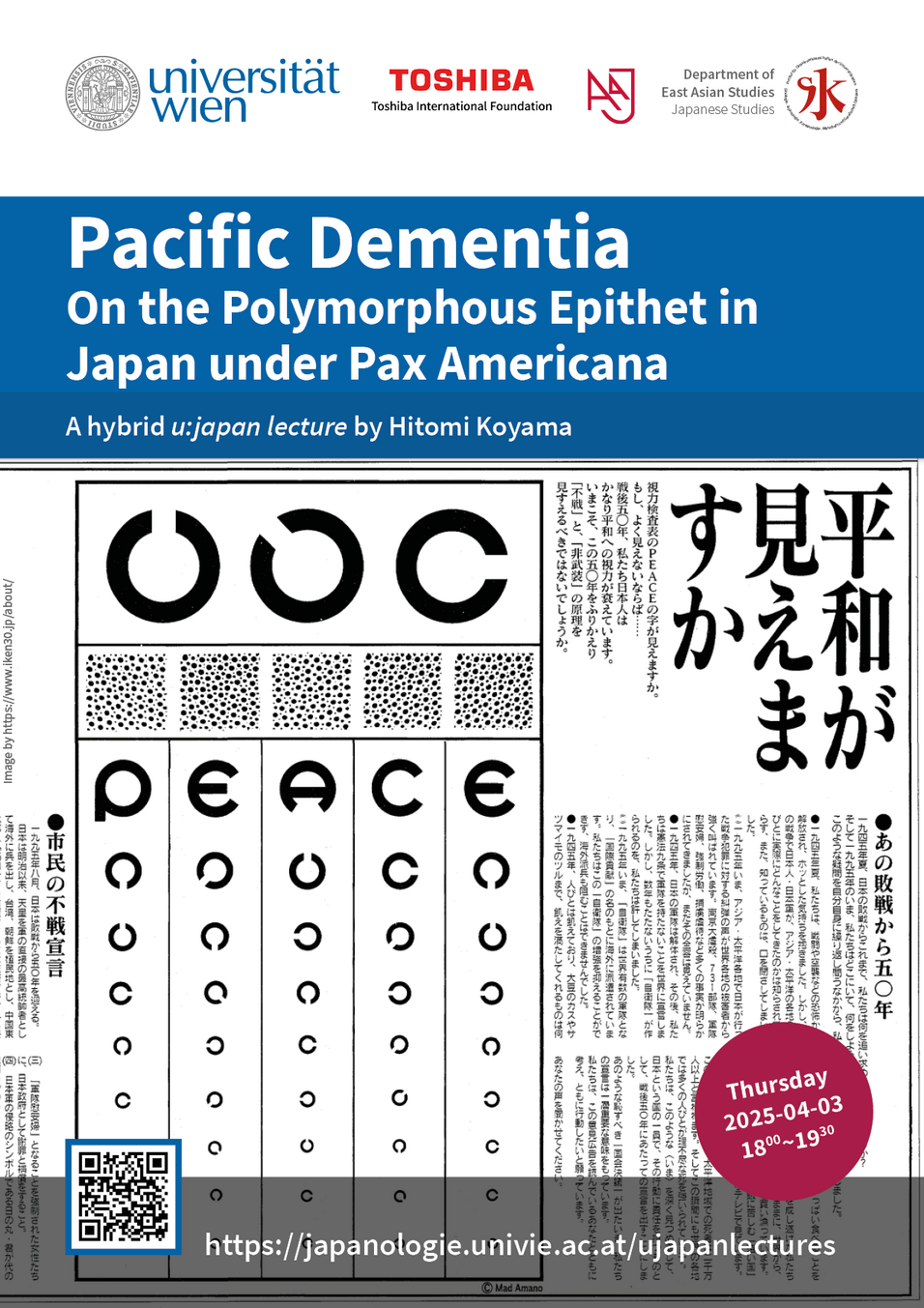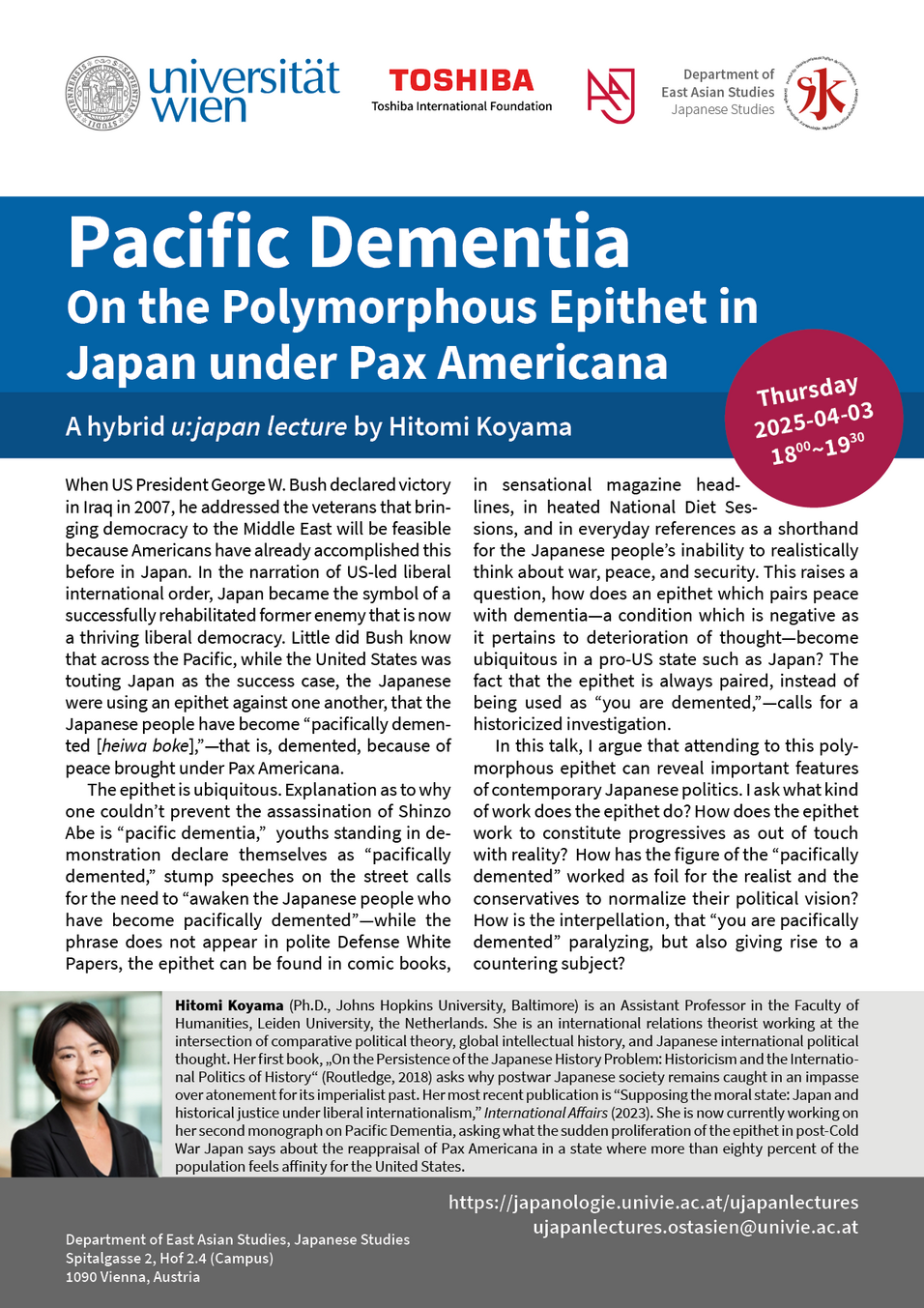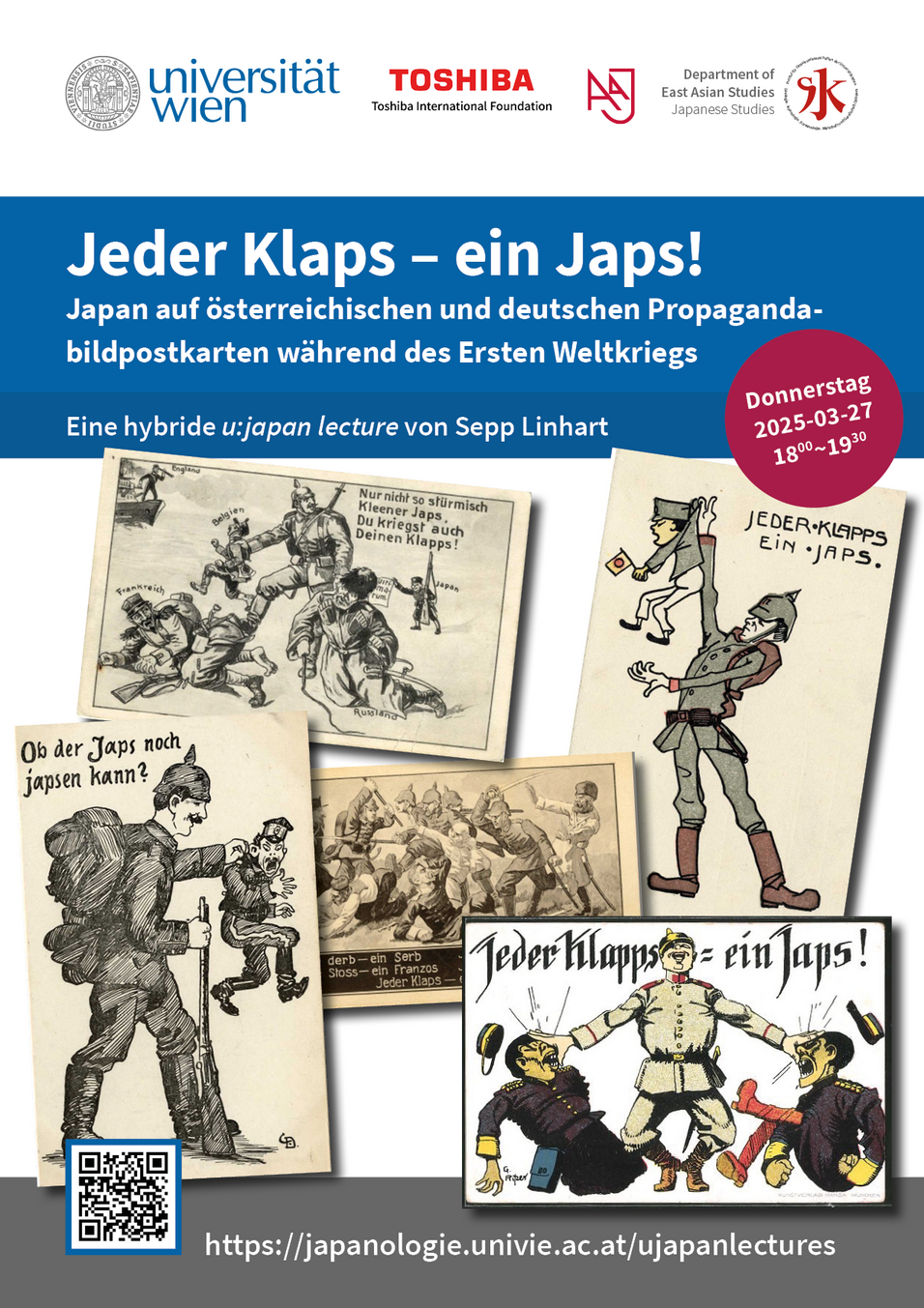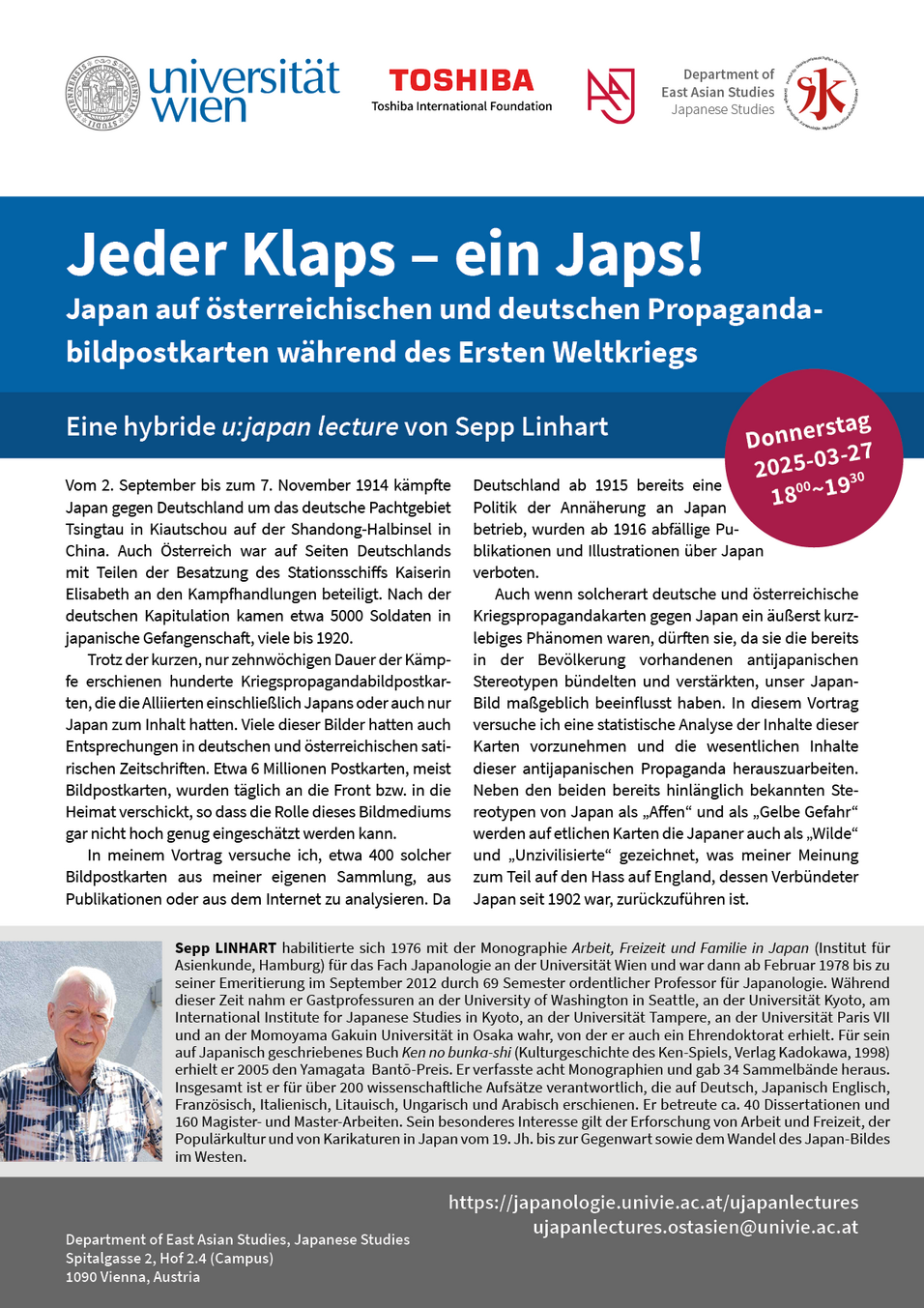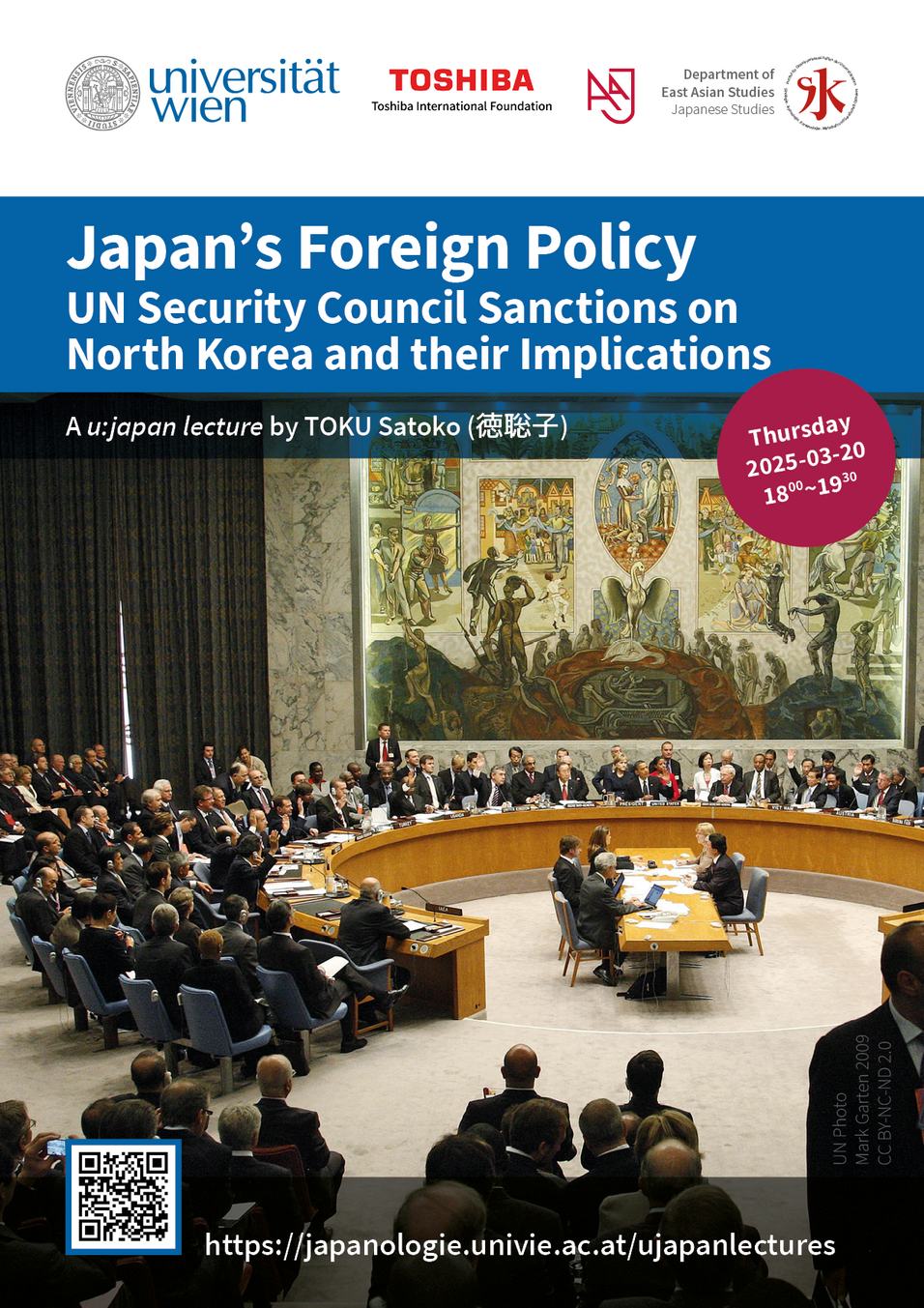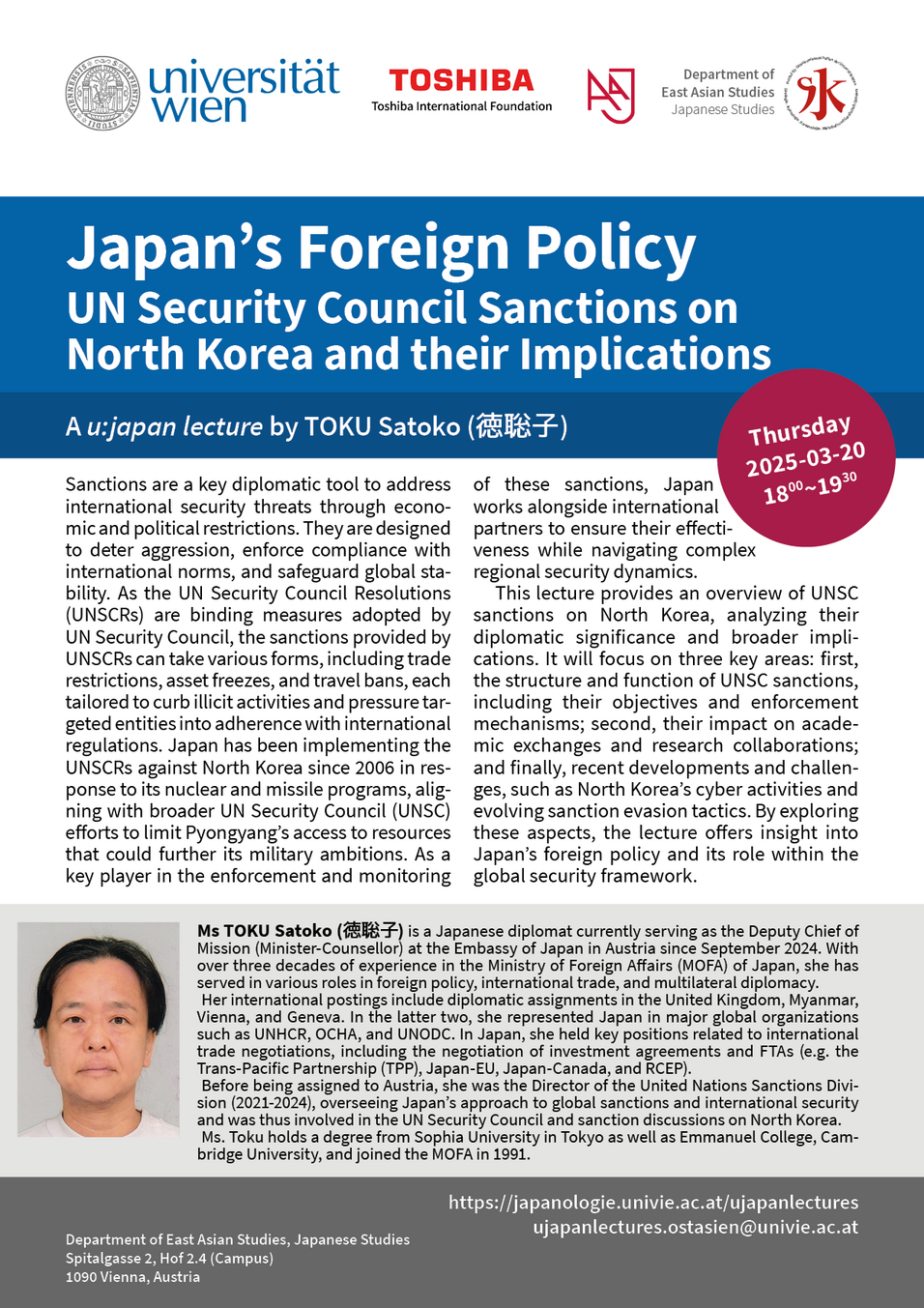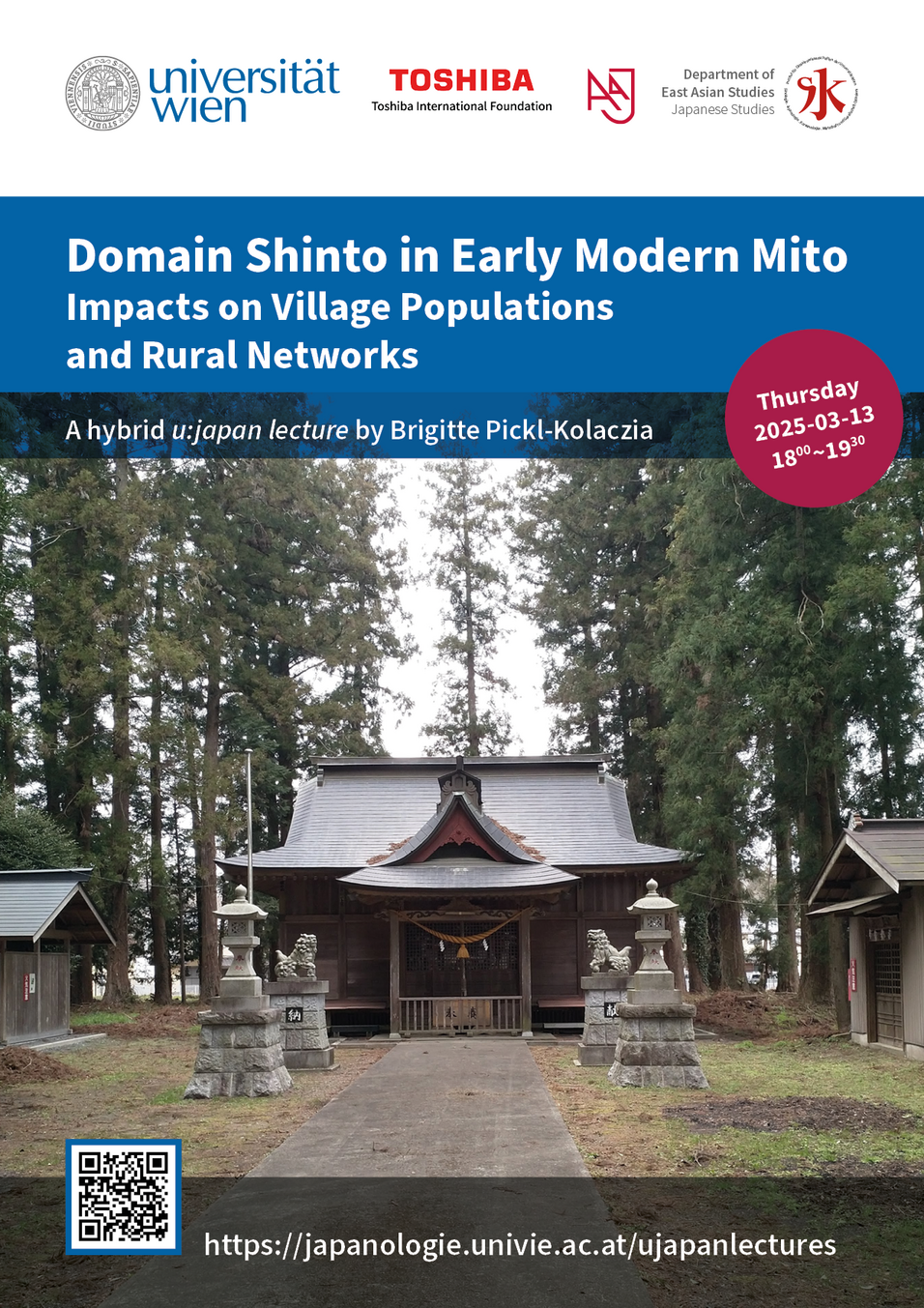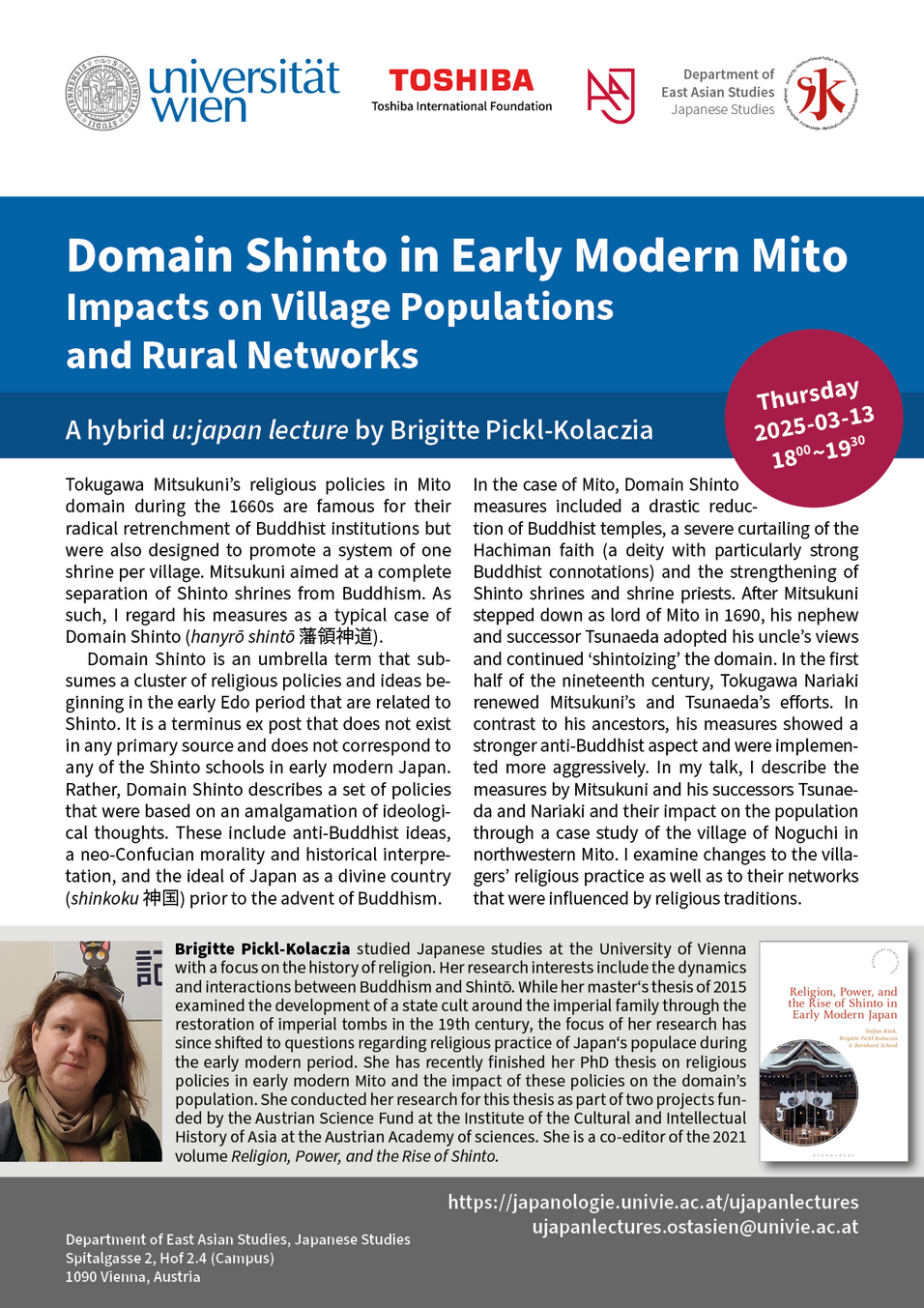| Abstract |
Well-being and happiness are closely related to our everyday lives, have been addressed by policies and societal discourses and can be a stimulating subject for private conversations. In research, subjective well-being is often measured at an individual level, focusing on experiences and self-ratings of participants of larger cross-national studies. While such surveys have their merits, they can cover the (personal, local or societal) context of the complex experience of well-being only to a limited degree. This talk first introduces dominant discourses on well-being in Austria and Japan, illustrating differences and similarities across these societies. Second, I will depart from a comparison of statistics, taking a deeper look into the well-being of some residents in a rural region on Kyushu island in Japan. I will introduce an approach of well-being that is grounded in the natural environment of the area and the activities of everyday life in rural society. I will demonstrate how doing something to make someone happy, turns out to be a positive experience for oneself, too. This reciprocal and processual understanding of well-being encourages us to understand well-being and happiness to be something experienced together rather than being entirely restricted to the individual – not only in Japan, but also in Austria or any other society.
| Bio |
Dr. Sebastian Polak-Rottmann is senior research fellow at the German Institute for Japanese Studies (DIJ Tokyo). He received his PhD at the University of Vienna (Japanese Studies) on the subject of well-being and political participation in the Aso region in Southern Japan. He was part of an interdisciplinary research project on rural well-being at the University of Vienna, funded by the DOC-team grant of the Austrian Academy of Sciences (ÖAW). At the DIJ, he is head of the research cluster on sustainability in Japan. In his current research project, he focuses on the resilience of rural (ageing) communities.
| Date & Time |
u:japan lecture | s10e11
Thursday 2025-06-26 | 15:30 ~ 17:00 JST | 8:30 ~ 10:00 CEST
| Place |
LIVE @ at the Austrian Pavilion, at the EXPO 2025 Osaka, Kansai, Japan.
https://www.expoaustria.at/en/
| Plattform & Link |
https://univienna.zoom.us/j/67747577218?pwd=6WHDIazmgAcJW0IPZWJRVOZkSigsd5.1
Meeting-ID: 677 4757 7218 | Passcode: 791155
| Further Questions? |
Please contact ujapanlectures.ostasien@univie.ac.at or visit https://japanologie.univie.ac.at/ujapanlectures/s10/#e11.


